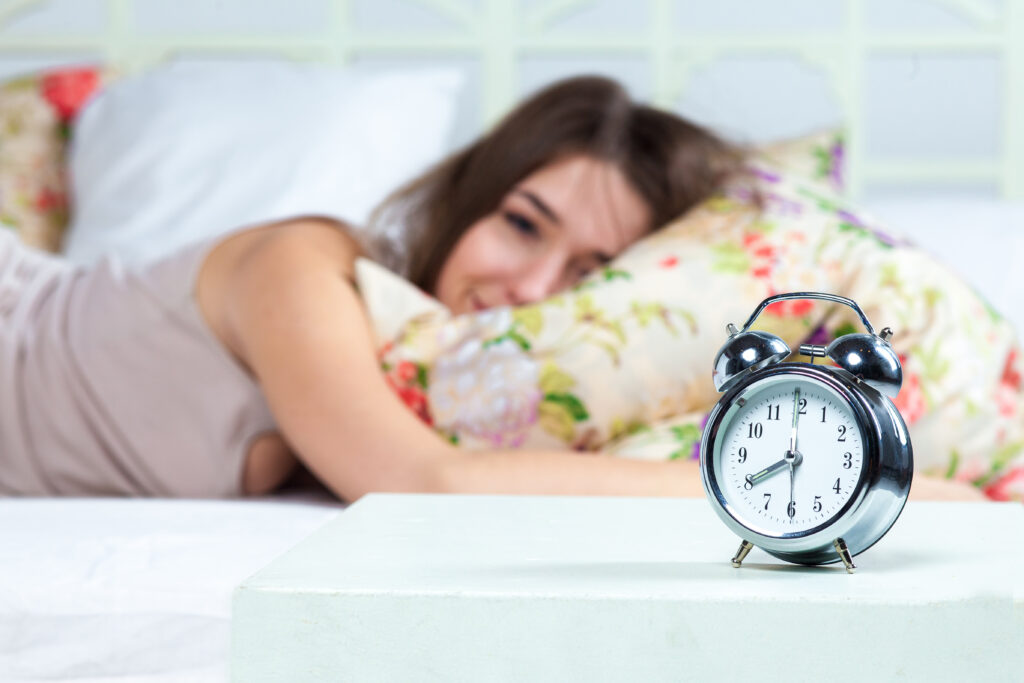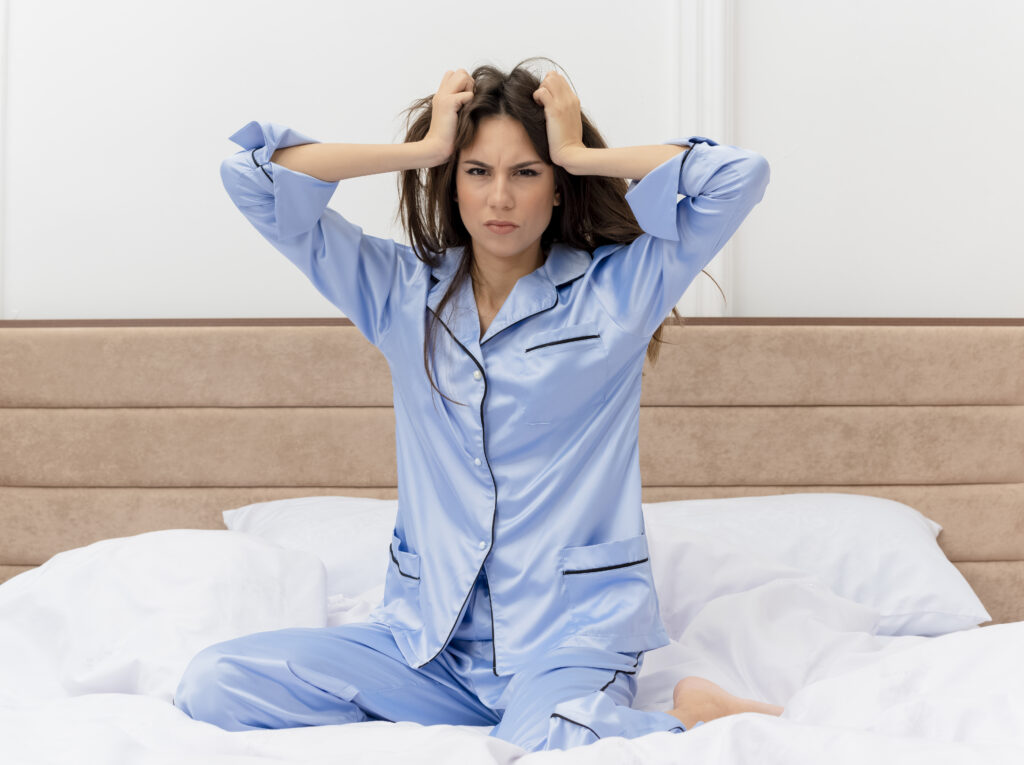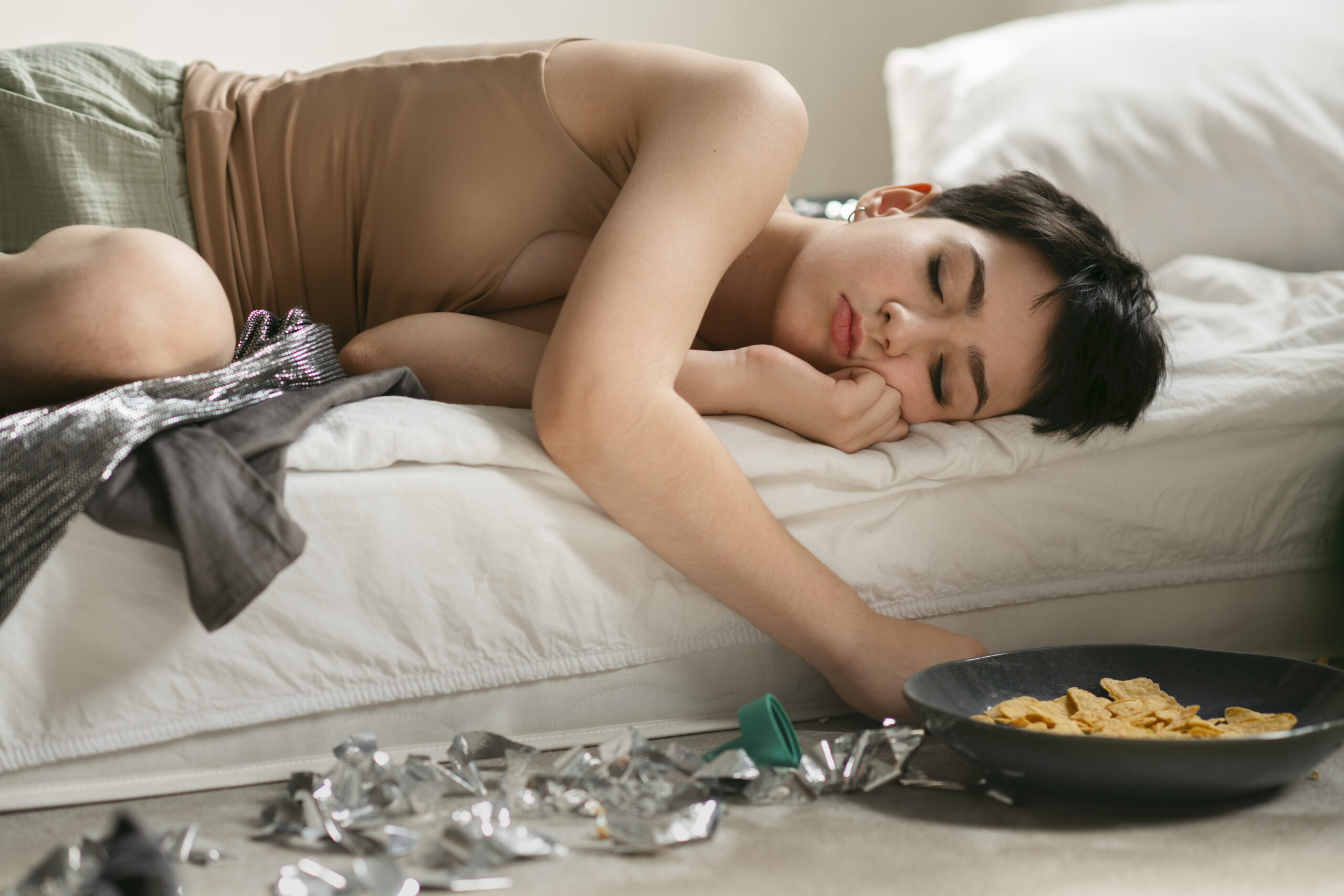Here we are going to share information on the topic “7 Unconventional Methods for Sabotaging Your Sleep Schedule.” In today’s fast-paced world, maintaining a healthy sleep schedule is crucial for overall well-being. However, there are numerous unconventional methods that can wreak havoc on your ability to get quality rest. From excessive caffeine consumption to irregular napping patterns, these practices often undermine the body’s natural sleep rhythms and lead to sleep deprivation. Despite the allure of temporary relief, such habits can have long-lasting consequences for physical and mental health.
“7 Unconventional Methods for Sabotaging Your Sleep Schedule” sheds light on these counterproductive behaviors. By examining the detrimental effects of erratic sleep patterns and the temptations that lead us astray, this exploration serves as a reminder of the importance of prioritizing healthy sleep habits.
A peaceful bedroom, a cosy bed, and plenty of time are all necessities for a restful night’s sleep. However, studies reveal that our daytime activities might impact our sleep just as much as our evening ones.

7 Unconventional Methods for Sabotaging Your Sleep Schedule
7 Unconventional Methods to Sabotage Your Sleep Schedule: A Wake-Up Call to Healthy Habits
Although intentionally messing with your sleep schedule can be bad for your health in general, there are still certain unorthodox ways that work. Experimenting with coffee intake late into the night, working out hard just before bed, or overindulging in large meals right before bed are all frequent yet detrimental habits.
Furthermore, the brain can be tricked into remaining awake longer by exposing it to devices that generate blue light, such as those seen on computers and smartphones. Furthermore, an irregular sleep schedule can seriously disrupt your body’s internal clock, particularly if it is caused by sporadic napping or uneven nighttime rituals. Even the initial sedative effects of alcohol might cause sleep disturbances during the night.
Lastly, participating in emotionally draining activities or obsessing over distressing ideas right before bed might make sleeplessness worse. Out of all the non-traditional behaviors that could undermine your sleep, maintaining regular nighttime habits and establishing a peaceful, sleep-promoting atmosphere are still the most important ways to protect your sleep hygiene.
7 Unconventional Methods for Sabotaging Your Sleep Schedule
Therefore, check to determine if these daily errors are keeping you from falling asleep even after you’ve changed your nighttime routine:
1. You press the button to snooze.
Your morning routine can have a significant impact on whether or not you get a decent night’s sleep. This is because, according to Robert S. Rosenberg, medical director of the Sleep Disorders Centers of Prescott Valley and Flagstaff, Arizona, when you push the snooze button, you’re initiating a new sleep cycle that you won’t be able to finish in 10 minutes when the alarm goes off again.
He told CNN, “What little extra sleep you’re receiving is of low quality because you’re fragmenting it.”
According to Rosenberg, if you don’t complete a sleep cycle that your body has started, you may feel drowsy during the day. This can also cause your body’s internal clock to malfunction and interfere with your sleep the next night.
2. You avoided being in the sun.
Getting outside (or even indoors) as soon as possible in the morning is one of the best things you can do to improve your sleep. According to numerous studies, being exposed to light in the morning helps reset your circadian rhythm, which instructs you to feel awake in the morning and tired when it’s time to go to bed.
3. You used your smartphone excessively.
An excessive amount of screen time before bed may be harmful to your Z, according to numerous studies. The melatonin hormone, which is naturally produced by the body at night to induce sleep, is disrupted by the blue light emissions from the devices.
However, a recent study discovered that using your smartphone excessively for extended periods of time during the day may also be bad for your sleep. The study monitored 653 participants’ self-reported sleep metrics and smartphone screen time usage. With an increase in smartphone screen time, sleep duration and quality declined.
4. You had one or two sodas.
People who slept for five hours or less per night drank 21 percent more sugary, caffeinated beverages than those who slept for seven to eight hours per night, according to a recent study including 18,779 adults.
The survey data is a little ambiguous when it comes to determining whether folks who drank more sugary, caffeinated beverages actually slept less or the other way around. However, according to study author Aric A. Prather, an assistant professor of psychiatry at the University of California, San Francisco, both activities are associated with unfavorable health outcomes.
According to a statement from Prather, “poor sleep and excessive use of sugary drinks have both been associated with detrimental metabolic health outcomes, including obesity.” It seems probable that there is a reciprocal relationship between the two actions. This implies that altering a single behaviour, such as consuming less soda and energy drinks, may enhance sleep.
5. You smoke.
To the vast list of major health hazards linked to smoking, add sleep disorders.
Similar to caffeine, the nicotine in cigarettes is a stimulant that may keep you up at night. According to studies, smokers are more than four times as likely as non-smokers to report having trouble sleeping. In addition to altering the internal clock of your body and raising your risk of obstructive sleep apnea, smoking actually shortens your sleep cycle by 1.2 minutes for each cigarette smoked.
6. You linger on the couch far too much.
The one health-related gift that never stops giving is exercise. It helps you maintain a healthy weight, improves your mood, maintains strong bones and muscles, lowers your chance of heart disease, diabetes, obesity, and some types of cancer, and extends your life in general. Experts suggest that consistent exercise also makes you sleep like a baby.
According to a National Sleep Foundation poll, those who exercised reported getting better sleep than those who did not. However, the survey also discovered that getting enough sleep wasn’t limited to gym goers; in fact, it could be achieved by simply sitting less. In contrast to sitting for ten or more hours a day, the study indicated that reporting adequate sleep was associated with fewer than six hours of sitting per day.
7. You use your bed as a workspace or breakfast table.
Your bed is not your desk, no matter how small your apartment appears to be. This isn’t your sofa. Furthermore, it’s not your cosy phone booth for long conversations with your closest friend.
Jess Shatkin, a pediatrician and child and adolescent psychiatry professor at the New York University School of Medicine, previously told HuffPost, “You want to link the bed with sleep.” “You want your head to drool for sleep when you see your bed, much like Pavlov’s dogs did when they heard the bell.
“To establish a strong relationship between your bed and sleep, sleep experts advise saving your bed for solely sleeping and having sex. Your body is being trained to recognize that it is time to go to sleep when it goes to bed.
Frequently Asked Questions
(7 Unconventional Methods for Sabotaging Your Sleep Schedule)
What is the sleep 10 3 2 1 0 rule?
Answer: The 10-3-2-1-0 Sleep Rule Can Help You Sleep Better: Sleep Dynamics
Give up coffee ten hours before going to bed. Avoid food and alcohol three hours before going to bed. Work should end two hours before bed. Two hours before going to bed, put your screens away.
Is four hours of sleep twice a day acceptable?
Answer: However, research indicates that biphasic sleep patterns are often safe. Most studies indicate that it’s okay if you sleep in two periods as long as you’re still receiving seven to nine hours per night.
Will my sleep schedule be disrupted by a 20-minute nap?
Answer: Can sleep loss be made up for with a nap? Things to Recognize About Health…
Dr. Atwood advised that if you find yourself in need of a nap, try to limit it to no more than thirty minutes to avoid disrupting your sleep the following night. The optimal time to sleep is in the afternoon, “when we tend to feel sleepy and have a natural decrease in attentiveness,” the speaker continued. Quicker sleep is made easier by this.
What does a sexsomniatic look like?
Answer: It can take many different forms, including full-blown sexual relations with a bed partner, moaning and vocalizing during sleep, or fondling.
What is the sleep-related golden rule?
Answer: The Golden Guidelines for Sleep.
Make sure you get enough sleep each night. Determine how much sleep you require each night in order to be completely awake during the day. It will have a profound effect on your mood as well as your capacity for critical and original thought.
What is the sleep 30-90 rule?
Answer: The 30-90 Rule: What Is It? An excellent napping guideline that will help you avoid feeling sleepy afterward is the 30-90 rule. It says that in order to enhance both physical and mental well-being, naps should be 30 minutes or less, or at least 90 minutes.
What is the sleep 234 rule?
Answer: This plan states that your baby should be awake for two hours prior to taking their first nap. Your infant naps again for three hours after finishing their morning nap. It’s bedtime four hours after your baby wakes up from their second nap.

Conclusion
(7 Unconventional Methods for Sabotaging Your Sleep Schedule)
In conclusion, preserving general health and wellbeing requires protecting your sleep schedule from unforeseen interruptions. Through awareness of the traps described in “7 Unconventional Methods for Sabotaging Your Sleep Schedule,” people can emphasize restorative sleep habits and cultivate a more balanced lifestyle by making educated decisions.
So, this is how the topic “7 Unconventional Methods for Sabotaging Your Sleep Schedule” has been addressed.
For more information related to these topics,
You may also visit our Instagram page by
Thank you!

